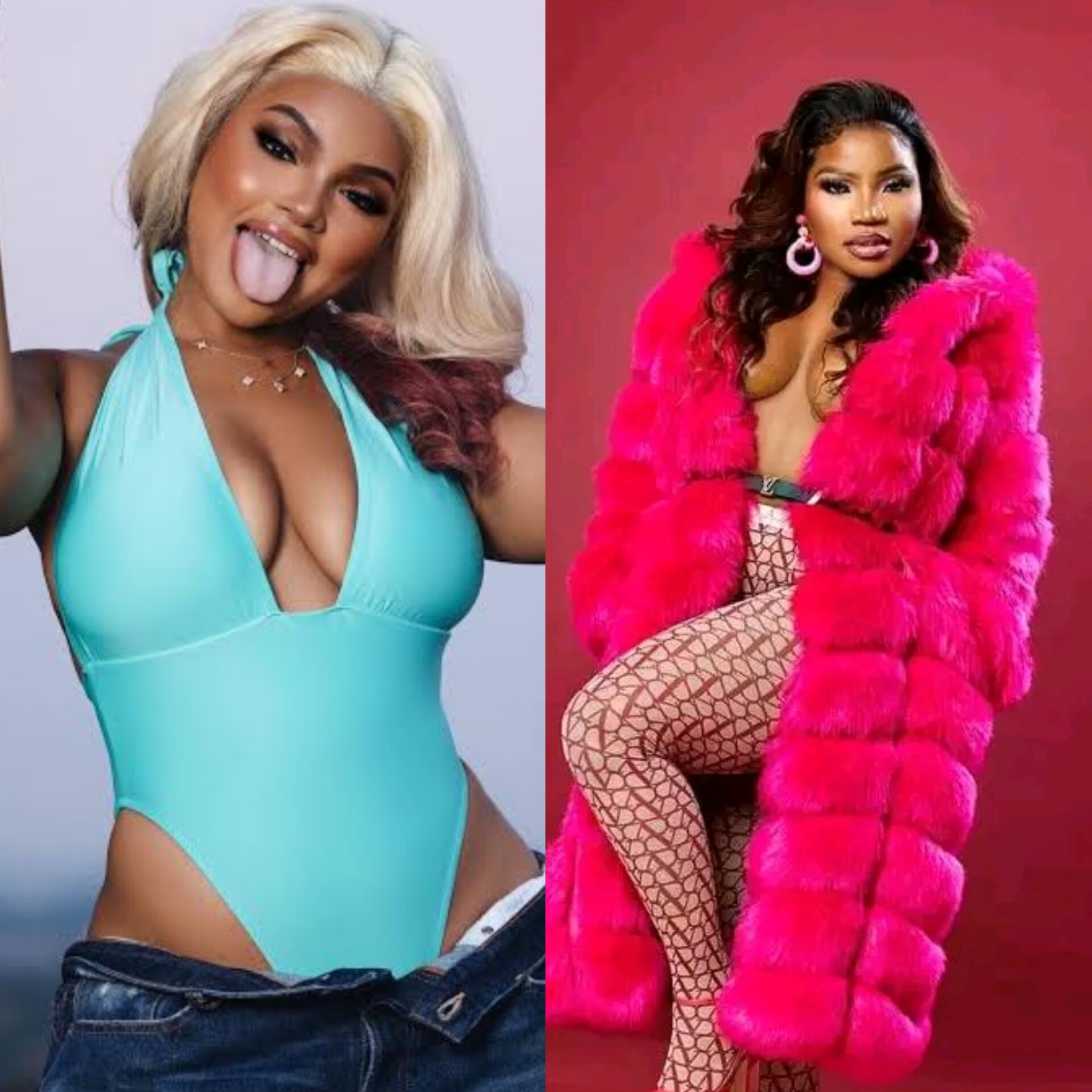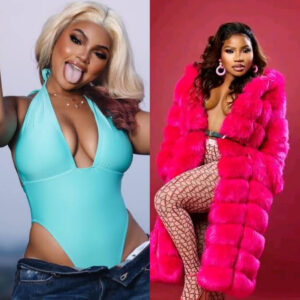
The South African entertainment industry is once again embroiled in a controversy, this time involving popular singer Makhadzi and her comments about fellow artist Mawhoo’s weight. The incident has sparked a heated debate about body shaming, celebrity hypocrisy, and the need for kindness and empathy in the industry.
Makhadzi, known for her hit songs like “Ghanama” and “Makhwapheni”, made the controversial comments on a photo of Mawhoo posted by Junxion Lifestyle Lounge on June 4, 2024. In the image, Mawhoo is seen holding a champagne flute and wearing a Gucci bomber jacket after her performance. Makhadzi’s comment, which has since been met with widespread criticism, reads: “I must find you a Venda man who will stress you so you can loose wait, my queen.”
The backlash was swift, with many netizens calling out Makhadzi for her hypocrisy and mean-spirited comment. Twitter users like @melo_mothapo, @mikhosemihle, and @nothile_____ reminded Makhadzi that she had been a victim of bullying herself and should know better than to body-shame someone else. @nayhhht pointed out the irony of Makhadzi commenting on someone’s weight when she had been trolled about her own appearance in the past.
This incident highlights the pervasive problem of body shaming and celebrity hypocrisy in the entertainment industry. Makhadzi’s comments not only perpetuated harmful beauty standards but also demonstrated a lack of empathy and understanding. As public figures, celebrities like Makhadzi have a significant influence on their fans and should use their platforms to promote positivity and inclusivity instead of tearing each other down.
Body shaming and fat-shaming, in particular, are harmful practices that can have severe effects on individuals’ mental health and self-esteem. The constant bombardment of unrealistic beauty standards and the scrutiny of celebrities’ appearances only exacerbate the issue. Makhadzi’s comments, although seemingly made in jest, perpetuate the harmful narrative that weight and appearance are acceptable topics for mockery and judgment.
Furthermore, Makhadzi’s hypocrisy in this situation is striking. The singer has been a victim of bullying and body shaming herself, with many criticizing her appearance and weight in the past. One would expect her to be more empathetic and understanding towards others who face similar challenges. Instead, her comments reveal a lack of self-awareness and a perpetuation of harmful attitudes.
The entertainment industry needs to do better. Celebrities like Makhadzi have a platform and influence that can be used to promote positivity, inclusivity, and kindness. Instead of tearing each other down, they should be lifting each other up and promoting a culture of acceptance and support.
In the wake of this controversy, it remains to be seen how Makhadzi will respond to the backlash and whether she will take steps to make amends with Mawhoo and the public. One thing is certain, however – the entertainment industry needs more kindness, empathy, and support among its members, rather than petty squabbles and hurtful comments.
As fans and consumers, we also have a role to play in promoting a culture of kindness and acceptance. We can choose to support celebrities who uplift and inspire others, rather than those who perpetuate harmful attitudes and behaviors. We can also engage in conversations and raise awareness about the harmful effects of body shaming and fat-shaming, promoting a culture of inclusivity and acceptance instead.
In conclusion, Makhadzi’s comments about Mawhoo’s weight are a reminder of the harmful attitudes and behaviors that pervade the entertainment industry. It is time for celebrities and fans alike to promote a culture of kindness, empathy, and acceptance, rather than perpetuating harmful beauty standards and body shaming. Only then can we create a more inclusive and supportive industry that uplifts and inspires all individuals, regardless of their weight, appearance, or background.






